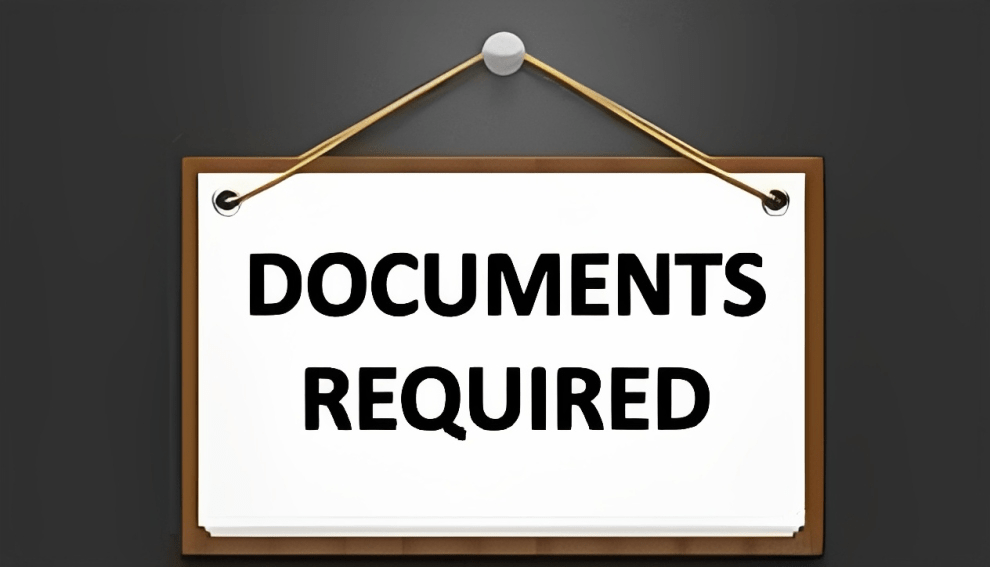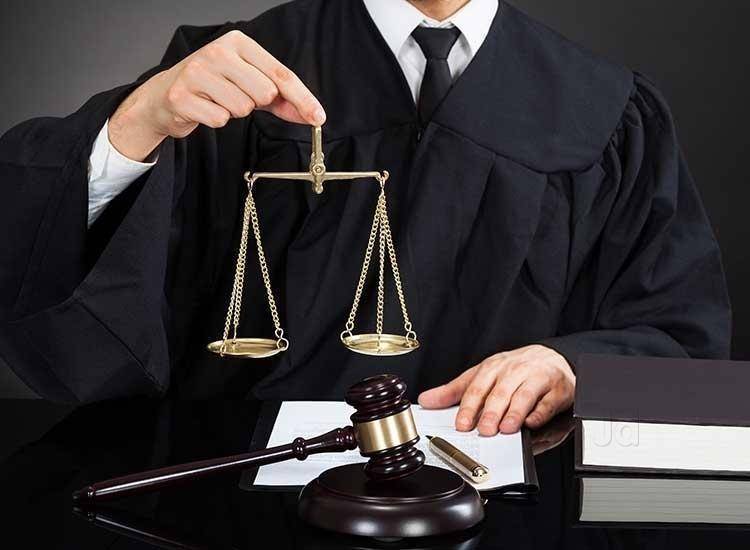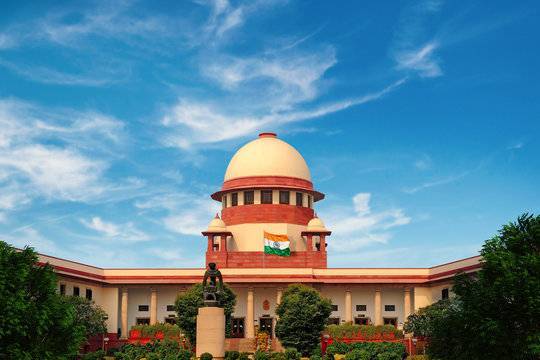
GAG LAWYERS -
GROVER & GROVER ADVOCATES

GAG LAWYERS -
GROVER & GROVER ADVOCATES

Will Lawyer, My will is a legal document that outlines how I want my assets to be distributed and managed after my death. It also names my chosen executor, who will be responsible for carrying out my wishes, and my beneficiaries, who will receive what I have left behind.
1. The first section of my will should include a statement of my wishes. I should clearly state how I want my assets to be distributed and any other instructions I have for my executor. If I have any specific wishes for how I want my funeral to be conducted, these should be included in this section as well.
2. The second section of my will should include a list of my assets and their estimated value. This should include all of my property, bank accounts, investments, and other financial assets. I should also include any debts I have, as my executor will be responsible for settling them.
3. The third section of my will should include the names of my executor and my beneficiaries. I should include contact information for both my executor and my beneficiaries so that they can be easily contacted after my death.
4. The fourth section of my will should include a signed and witnessed statement. This statement should confirm that I wrote the will of my own free will and that I understand the legal implications of making a will. I should have my will witnessed by two independent individuals.
By taking the time to write my will, I can ensure that my wishes are carried out after my death. I can also give my loved ones peace of mind knowing that my assets will be distributed according to my wishes.

In India, a will is a legal document that states how a person’s assets and property should be handled after their death. A will is an important document that ensures that a person’s wishes are respected upon their death and that the person’s property is distributed in a way that is fair and in accordance with their wishes. In India, there are several types of wills that are recognised under the law.
1. The first type of will is a holographic will. This type of will is written entirely in the handwriting of the person making it. This type of will must be signed by the person making it and witnessed by two independent witnesses. This type of will is not always recognised by the law, so it is important to check with the local courts before making a holographic will.
2. The second type of will is an oral will. This type of will is spoken out loud by the person making it in the presence of two independent witnesses. This type of will is not always recognised by the law, so it is important to check with the local courts before making an oral will.
3. The third type of will is a registered will. This type of will is written down by the person making it and signed by them. This type of will must then be registered with the local court in order to be legally binding.
4. The fourth type of will is a testamentary will. This type of will is written by the person making the will, signed by them, and witnessed by two independent witnesses. This type of will is legally binding and can be changed or revoked by the person making it. However, if the will is revoked, it must be done in the presence of two independent witnesses.

The rights and obligations given under a will are the legal rights and obligations that an individual bequeaths to the beneficiaries of their estate upon their death. These rights and obligations are set out in the will document and are legally binding upon the beneficiaries. The rights and obligations that are given under a will are typically related to the distribution of the individual’s assets, such as property, money, investments, and other possessions.
The rights and obligations given under a will are typically related to the distribution of the individual’s assets. For example, the will may grant certain beneficiaries the right to receive certain assets upon the individual’s death. The will may also outline the obligations of the beneficiaries, such as the requirement to pay taxes on the assets they receive or to manage the assets in a certain way.
In addition to rights and obligations related to the distribution of assets, the will may also grant certain rights and obligations related to the management of the individual’s estate. For example, the will may designate an executor of the estate, who is responsible for carrying out the instructions in the will. The executor is also responsible for ensuring that the estate is properly managed and all taxes are paid.
The rights and obligations given under a will may also include certain personal wishes of the individual. For example, the will may designate certain individuals as guardians of minor children or as trustees of certain assets. The will may also include certain charitable gifts or requests to have certain items distributed to particular individuals.
The rights and obligations given under a will are legally binding and are intended to ensure that the individual’s wishes are carried out upon their death. It is important to ensure that the will is properly drafted and updated periodically to reflect any changes in the individual’s wishes. It is also important to ensure that the will is legally valid and is filed with the appropriate court or legal office.

The will is an important legal document that serves a variety of purposes. It is a legal declaration of a person’s wishes regarding their possessions and how these possessions should be distributed after their death.
1. The primary benefit of a will is that it allows a person to have control over who will receive their possessions after they have passed away. This control is significant because it allows a person to ensure that their possessions go to the people or organisations that they believe should receive them.
2. A second benefit of the will is that it enables a person to provide for their loved ones in the event of their death. A will can be used to provide for the financial security of a person’s family, to provide for the care of any minor children, or to determine who will be the guardian of any minor children. Furthermore, the will can be used to establish trusts, which can provide long-term financial security for minor children or other beneficiaries.
3. A third benefit of the will is that it can be used to minimise or avoid estate taxes. A person can use their will to set up trusts, make gifts to charity, or ensure that their estate is divided among their heirs in the most tax-efficient manner. This can be of great benefit to the heirs of the estate since it can significantly reduce the amount of taxes they will be required to pay.
4. A fourth benefit of the will is that it can be used to dictate how a business should be handled after the death of the business owner. A will can be used to name a successor who will take control of the business, to appoint someone to act as a trustee to manage the business or to ensure that the business is sold in the most advantageous manner. This can be of great benefit to the business and its employees.
5. Finally, a fifth benefit of the will is that it can be used to express the wishes of the deceased regarding a variety of matters. A will can be used to express the wishes of the deceased regarding funeral arrangements, burial location, the handling of digital assets, or any other matters that the deceased wishes to make known. This can provide comfort to the family of the deceased, as it can help them honour the wishes of their loved one.
In conclusion, the will is an important legal document that can provide a variety of benefits to the deceased and their family. The will can be used to ensure that possessions are distributed according to the wishes of the deceased, to provide for the financial security of loved ones, to minimise or avoid estate taxes, to dictate the handling of a business, and to express the wishes of the deceased regarding a variety of matters. Therefore, the will is an important tool for ensuring that a person’s wishes are carried out after their death.

Making a will is an important step in ensuring that your property and possessions are distributed the way you wish after you pass away. You should take the time to research the legal requirements for making a will in your state before starting the process.
1) The first step in making a will is to gather all the information and documents you will need. This includes details of all your assets, such as real estate, vehicles, bank accounts, investments, and life insurance policies. You should also create a list of people you would like to include in your will and the gifts you would like them to receive.
2) Once you have all the information you need, you should find a qualified attorney to help you draft your will. The attorney can provide advice and guidance on the best way to structure the document to ensure that it is legally binding and your wishes are carried out.
3) Once your will is drafted, you must sign it in front of two witnesses who are not beneficiaries listed in the document. The witnesses must also sign the will in your presence. The witnesses should not be related to you or to any beneficiaries in the will.
4) Once you have signed your will, you should store it in a safe and secure place. You should also inform your family and close friends of its whereabouts. Making a will is an important step in ensuring that your wishes are carried out after you pass away.

1. The first document required to make a will is a legal document formally declaring a person’s wishes regarding the disposal of their property and assets after their death. This document should be drafted in accordance with the laws of your state or country. The document should also include details such as the name of the testator (the person making the will) and the names of the executors of the will.
2. The second document required to make a will is a list of the testator’s assets and liabilities. This list should include all the property and assets owned by the testator, such as bank accounts, stocks, bonds, real estate, and other investments. It should also include debts owed by the testator, such as mortgages, car loans, and credit card balances.
3. The third document required to make a will is a list of beneficiaries. This list should include all the people or organizations that the testator wishes to benefit from their estate after their death. The list should include the names and addresses of the beneficiaries, as well as the percentage of the estate that each beneficiary should receive.
4. The fourth document required to make a will is an inventory of the testator’s possessions. This list should include all the personal items that the testator wishes to leave to their beneficiaries. It should include items such as jewelry, furniture, clothing, artwork, collectibles, and other items of value.
5. The fifth document required to make a will is a signed and witnessed copy of the will. This document should be signed by the testator in the presence of two witnesses. The witnesses must also sign the document to certify that the testator was of sound mind when they signed the will. The witnesses must not be named in the will as beneficiaries, or else their signatures may not be valid.

A lawyer is an invaluable asset when it comes to making a will. A lawyer can ensure that your wishes are fulfilled and that any potential legal issues are addressed. A lawyer can make sure that all of the proper documents are filed, as well as review any existing documents that may need to be updated or amended. A lawyer can also advise you on the best way to distribute your assets and make sure that the will meets all applicable legal requirements.
The first step in making a will is to consult with a lawyer. A lawyer can provide you with advice on the best way to structure your will and help you make sure that it meets all of the legal requirements. They can also review any existing documents that may need to be updated or amended.
Once the will is drafted, the lawyer will review it to make sure that it meets all legal requirements. This includes ensuring that all of the assets are distributed in accordance with state laws and that any potential disputes between beneficiaries are addressed. The lawyer can also review the will to make sure that all of the necessary information is included, such as who will be the executor of the will and who will receive any specific items.
Once the will is finalised, the lawyer will file the necessary documents with the appropriate court and make sure that all of the paperwork is in order. This includes submitting any applicable taxes as well as making sure that any necessary court fees are paid. The lawyer can also provide you with advice on how to handle any disputes or challenges to the will.
Finally, the lawyer will ensure that the will is valid and that it is executed properly. This includes making sure that all of the beneficiaries are aware of their rights as well as ensuring that any changes to the will are valid. The lawyer can also provide advice on how to handle any disputes between beneficiaries. In addition, the lawyer can provide guidance on how to handle any estate planning issues that may arise after the death of the testator.

Grover & Grover, advocates and solicitors, specialise in helping individuals make a will. This process involves a number of steps that must be followed in order to ensure that the will is legally valid. They understand the importance of making a will and will provide guidance and advice throughout the process.
The first step of the process is to meet with Grover & Grover Advocates and Solicitors to discuss the individual’s wishes and desires. During the meeting, they will go over the various options available and answer any questions the individual may have. They will also help the individual decide who will be the executor of their will and who will be the beneficiaries.
Once the individual has decided what they want in their will, Grover & Grover Advocates and Solicitors will draft the will according to their wishes. It is important to ensure that all the details are correct and that the will is legally binding. The will must be signed by the individual and witnessed by two people.
Once the will is complete, Grover & Grover Advocates and Solicitors can help ensure that it is valid. They can review the document to ensure that all the legal requirements have been met and advise the individual on any changes that need to be made. They can also help the individual store the document in a secure location and provide advice on how to keep it safe.
Grover & Grover Advocates and Solicitors are experienced and knowledgeable in the process of making wills. They can help individuals ensure that their wishes are respected and their assets are distributed in the way they desire. With the help of Grover & Grover, individuals can have peace of mind knowing that their will is legally valid and will be upheld in the event of their death.

1. In 2011, the Supreme Court of India ruled in the case of Rajendra Prasad v. Union of India, which stated that the right to make a will is a fundamental right of all Indian citizens. This ruling was based on the Indian Constitution’s Article 21, which guarantees the right to life and liberty. The ruling also said that the right to make a will is a part of the “right to life”, and can’t be taken away from an individual. This was a landmark ruling, as it was the first time that the Supreme Court had recognised this right and given clear guidance to people wanting to make a will.
2. In 2015, the Delhi High Court, in the case of Inderjeet Singh v. Union of India, upheld the right of individuals to make a will even if they don’t have a legal guardian. The Court held that the right to make a will is a fundamental right of all citizens and that it cannot be denied to anyone. This ruling was important, as it established the right of individuals to make a will even if they don’t have a legal guardian.
3. In 2016, the Supreme Court ruled in the case of Shivam Singh v. Union of India that the right to make a will is a fundamental right of all Indian citizens, irrespective of their religion or faith. This ruling was significant, as it established that the right to make a will is not limited to any particular religion or faith.
4. In 2018, the Supreme Court held in the case of Ram Chandra Singh v. Union of India that the right to make a will is an essential part of an individual’s fundamental rights. The Court also held that the right to make a will cannot be denied to anyone, regardless of their social or economic status. This was an important ruling, as it established that the right to make a will is a basic right of all Indian citizens.
5. In 2020, the Delhi High Court, in the case of Ramesh Kumar v. Union of India, reiterated the right of individuals to make a will regardless of their social or economic status. The Court held that the right to make a will is a fundamental right and cannot be taken away from an individual under any circumstances. This ruling was significant, as it reaffirmed the right to make a will as a fundamental right of all Indian citizens.